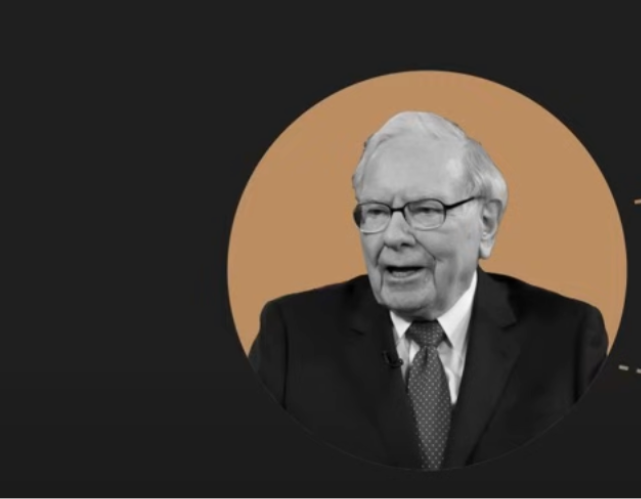News
Is Berkshire Hathaway Unloading Stocks in Anticipation of Higher Capital Gains Tax Rates?

Source: YouTube
Investors have taken notice as Warren Buffett, CEO of Berkshire Hathaway, sells off large portions of the company’s Apple stock. This move comes as speculation rises around the potential for an increase in capital gains tax rates. Many believe that if the Democrats win the election, they will push to increase capital gains taxes to address the federal deficit. But Buffett himself has stated he’s not concerned about a potential hike in the capital gains taxes. Rather, he sees it as part of his responsibility to the economy and has continued his sales regardless.
Buffett’s latest sale of Apple shares saw Berkshire Hathaway’s stake drop to around 300 million shares, down from its peak of 400 million shares. As a result, Berkshire has built up a record-breaking $325.2 billion in cash reserves. His strategy, aimed at maximizing cash reserves and reducing heavy reliance on high-taxed assets, is worth examining in light of possible capital gains tax changes.
Why Capital Gains Tax Rates Might Rise Starting Next Year
The U.S. federal deficit has reached 122% of GDP. Many analysts believe that addressing this deficit will require higher taxes, including a potential capital gains tax increase. Buffett himself has noted that with the current fiscal policy, tax increases, especially on capital gains, seem likely. Vice President Kamala Harris has indicated that her administration would raise corporate tax rates and potentially capital gains to address the shortfall if elected.
This potential policy shift has motivated some investors to preemptively sell off assets to avoid higher capital gains taxes in the future. These taxes apply when assets like stocks are sold at a profit. Thus, a higher tax rate could significantly impact investors’ net returns, making it more appealing to cash in now.
Buffett’s Apple sell-off aligns with this thinking. By selling a significant portion of his stock while current tax rates are stable, Berkshire can realize gains without incurring additional future tax penalties. However, it’s essential to note that Buffett isn’t driven by tax avoidance but rather a calculated approach to market conditions.
Buffett’s Official Stance: Unconcerned About Capital Gains Taxes
Despite the speculation, Buffett has publicly stated that he’s untroubled by the potential for higher capital gains taxes. He considers these contributions essential, saying at Berkshire’s May meeting, “We always hope at Berkshire to pay substantial federal income taxes; we think it’s appropriate.” His long-term approach suggests that paying these taxes is part of sustainable corporate responsibility rather than an obstacle to avoid.
That said, by holding onto ample cash reserves, Buffett can remain flexible. Berkshire’s balance sheet, loaded with $325.2 billion in cash and short-term treasuries, allows the firm to seize new opportunities and weather potential taxation changes.
Preparing for an Uncertain Future in Taxes
Buffett’s strategy reflects a careful approach to unpredictable tax and economic environments. His stock sales, including those of high-value shares like Apple, allow Berkshire Hathaway to accumulate cash, providing a cushion against possible market shifts or capital gains tax increases. This flexibility is a hallmark of Buffett’s investment philosophy, emphasizing readiness for both risks and opportunities.
In addition to Apple, Berkshire has trimmed other equity holdings, potentially to manage the impact of a higher capital gains tax. This steady divestment, which has lasted two years, positions Berkshire to take advantage of market dips or pursue valuable acquisitions without the constraints of a high-tax equity portfolio.
While some may interpret his moves as a response to potential capital gains tax increases, Buffett’s actions appear more aligned with his cautious, opportunity-focused approach. He is neither retreating from equities entirely nor betting solely on cash. Instead, he’s creating a balanced strategy.
Do you think Buffett's approach to minimize capital gains tax exposure is a smart move for investors? Tell us what you think!



